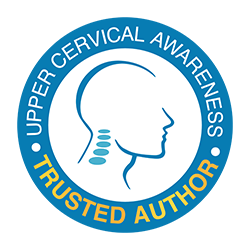
The Origin of a Concussion
Head impacts, forceful falls and unexpected blows both on and off the field can lead to a cascade of symptoms often associated with a concussion. These symptoms include:
- Headaches
- Neck pain and tension
- Dizziness
- Shoulder pain
- Balance difficulty
- Vestibular dysfunction
- Nausea/vomiting
- Poor focus & concentration
- Poor memory
- Ocular dysfunction
- ANS-dysfunction
- Psychological distress
- Tinnitus
- Sleep disturbance
All of these symptoms are also frequently found in whiplash injuries of the neck. Although a concussion is commonly known as a head injury, more research is pointing to concussions being related to an injury of the neck (Morin et al.). Even field-side evaluations for athletes focus on cranial nerves that come from the brainstem, which sits close to and within the craniocervical junction, which is the joint structures between the head and the upper neck.
Complimentary Concussion Consultation
We’d love to meet you for a 15-20 minute session with a doctor to get your story, conduct any preliminary tests, and see if we can help you. If so, great, if not, we’ll help you find the place that can.
Studies Say Look to the Neck
In a study focused on post-concussive headaches, the writer states that “upper cervical joint dysfunction is a feature of cervicogenic causes of headache” and they state that the results of their study to support evaluation of the neck when an athlete experiences headaches after being concussed. (Treleaven, et al.)
One large scale review of concussion states, ” Assessment and treatment of the cervical spine and vestibular system in the presence of persistent dizziness, neck pain, and/ Or headaches may facilitate functional and symptomatic improvements and shorten recovery in post-mTBI subjects.” (Morin, et al.)
In one of the most significant studies, 13 hockey players were evaluated after encountering either a whiplash force to the neck or a concussion to the head. All of the players had the exact same symptoms. Their conclusion was this:
“There is a strong association between whiplash induced neck injuries and the symptoms of concussion in hockey injuries. Both should be evaluated when dealing with athletes/patients suffering from either injury.” (Hynes, et al)
Why the Upper Neck?
The upper neck is the most vulnerable area in the entire spine, and far more vulnerable than the skull itself. The craniocervical junction has much less stable joints than other vertebrae, and the ligaments that keep the skull attached to the head are among the weakest in the spine. This does allow for more healthy head and neck movement under normal conditions, but it leaves the upper neck more vulnerable to injury and misalignment.
It takes approximately 60G’s of force to cause a true concussion (mTB1), however, it only takes about 4.5G’s of force to injure the upper cervical spine. This means that by the time you would have injured your brain, you have most likely already injured your neck.
Why Is It Missed?
Standard medical imaging for the brain only goes down to the bottom of the skull and standard spine imaging ordered from orthopedic or chiropractic offices only go as high as the second cervical vertebrae. The craniocervical junction is often overlooked in one or two essential dimentions in these cases, leaving many concussion symptoms a mystery. Upper cervical doctors use imaging specific to the craniocervical junction in all 3 dimentions and will often find the root cause of the concussion symptoms there. This is why standard evaluation of the brain can show normal findings in the brain, but significant post-concussion symptoms still persist.
Recovering From Concussion
Upper cervical doctors dedicate their careers to the specific correction of the craniocervical junction. Due to the forces that occur in the neck during a concussion, upper cervical care is the most specific approach to the area of likely injury. Upper cervical care has the potential to make powerful change in these symptoms and functions related to concussion injuries. It is vital for recovery to have an upper cervical doctor as a part of the management of concussion and post-concussive syndrome.
How Our Concussion Care Plan Works
1. Real Answers
You have a story and we want to hear it. We want to understand you. If we feel we can help, we’ll complete a very detailed exam–unlike anything you’ve done anywhere else to get to the root of the problem.
2. Real Solutions
Once we’ve gotten to the bottom of things–the root cause–we’ll tailor-make a program of care first to stop the damage and turn things around, then continue to move your health and function in a constructive direction.
3. Real Life
At the end of the day, you want your quality of life back. Better. Stronger. Healthier. We desire to help you achieve the life that God has called you to–getting you back to your sense of purpose and joy.
How We Treat Concussions With Upper Cervical Care in Mount Dora, FL
Comprehensive Consultation and Exam
The doctor and team will first do a consultation and preliminary evaluation (complimentary) to ensure you’re in the right place, and we can help you. If so, we’ll do a much deeper dive into your concussion condition and how it’s affecting your life. Once we understand you clearly, we’ll thoroughly examine your spine and nervous system utilizing chiropractic, functional, and neurologic testing to find the root cause of your concussion symptoms.
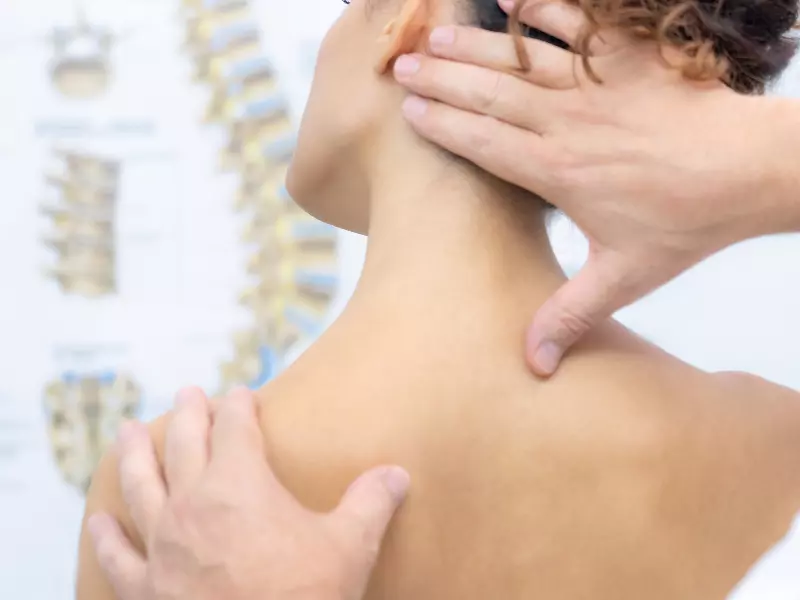
CBCT (3D Panoramic X-ray) and Motion Study X-rays
Once we’ve determined that you are a good candidate for care and we can help you, we will likely need to take very specific forms of imaging to pinpoint the problem (unless you are pregnant). We want to get a good look at the curves of the spine, the alignment (or lack thereof), any degenerative changes, contraindications to care, and ultimately find out EXACTLY what we need to do for you to get better.
*Depending on the findings, we may need to refer out for an MRI to get conclusive answers and the severity of the damage.
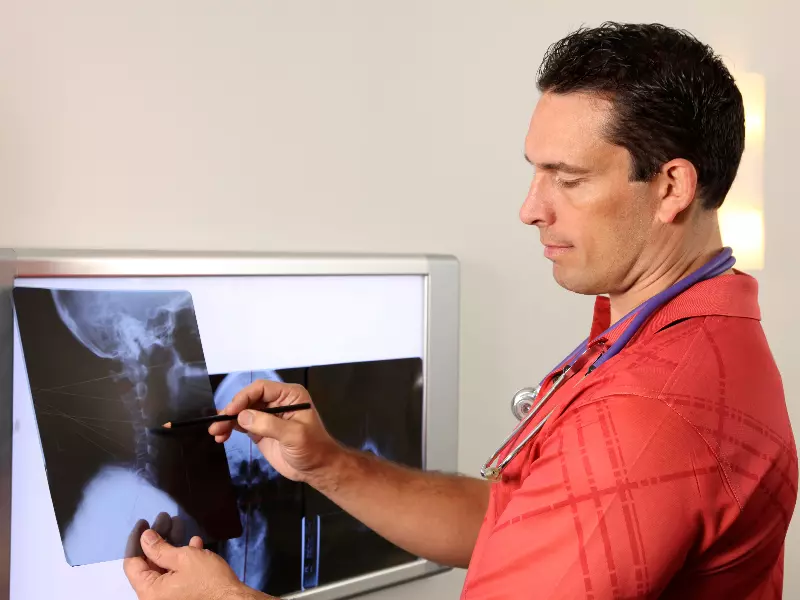
Specific Chiropractic Care
At our family-oriented practice in Mount Dora, we provide a specific and unique form of chiropractic care that is very precise, extremely effective, and incredibly gentle. In fact, there is no twisting or “cracking” of your spine. Utilizing a form of care known as Blair Upper Cervical, which focuses on the top two bones in the neck, where your head and neck come together, tends to yield uncommon results due to the neurological influence of this critical area of your spine. We add a supportive type of adjusting for the rest of your spine known as TRT (Torque Release Technique). This is also an exact, effective, yet gentle instrument-based technique that produces fantastic results.
When the joints of your spine are misaligned, it puts pressure on the joints and, more importantly, on your nervous system—known as a subluxation—which may cause pain and affect your global spinal alignment and health. Your specific adjustments aim to reduce the subluxations, taking pressure off your spinal joints, nervous system, and vasculature, reducing nerve tension, and improving blood and CSF flow so your body can self-heal the way it was created.
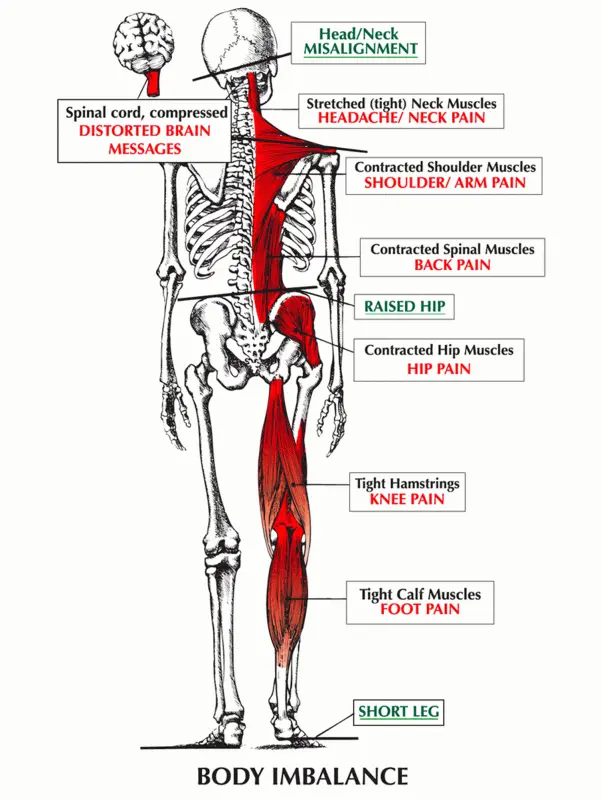
Custom Therapeutic Exercise Plan
Depending on your particular case, we will design a custom rehab/exercise plan to help you recover quicker and, most importantly, attain lasting results. Your unique exercise plan aims to help restore global spinal imbalances, address muscle weakness, increase range of motion, and improve your posture. We also aim to keep it simple—so you can do it at home quickly. If you are a severe case, we may refer you for physical therapy aimed at a more tailored and monitored exercise rehab to complement your upper cervical chiropractic care.
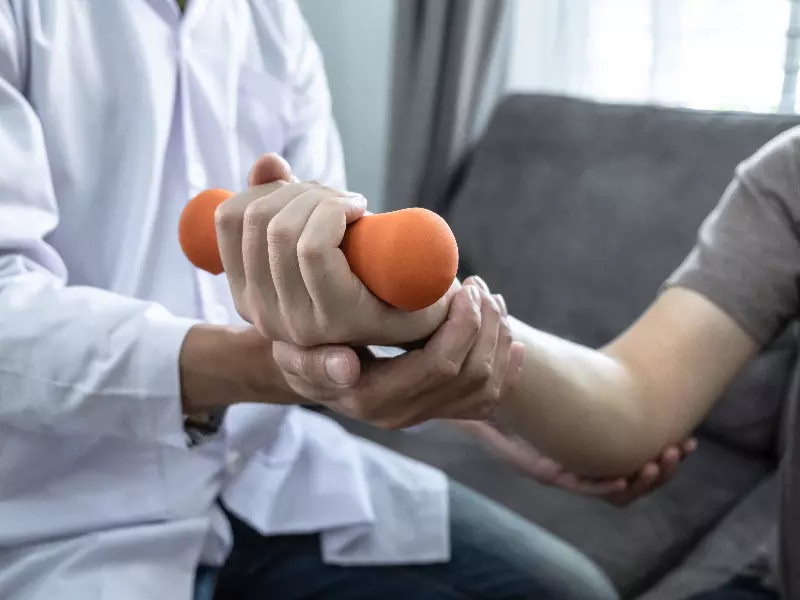
Upper Cervical Chiropractic Care
Our specialty at Mount Dora Family Chiropractic focuses on the upper spinal region where the head and neck join. It is well known that a concussion can misalign vertebrae in the neck due to the traumatic forces generally affecting the head and neck. The top two bones in the neck are scientifically and very precisely analyzed (known as the atlas (C1) and axis (C2) vertebrae). Doctors of Upper Cervical Chiropractic understand that misalignments or subluxations in this part of the spine can interfere with normal nerve pathways, cranial blood, and CSF flow, thus affecting various body systems which may cause or contribute to various health conditions following a concussion. Furthermore, subluxations left undetected and uncorrected may prevent full recovery and cause chronic health conditions in the long term.
Upper Cervical Chiropractic care aims to realign the upper cervical vertebrae to restore proper nerve function and promote overall health. This form of care, along with lifestyle modifications and support, can make a significant difference in recovery for those suffering post-concussion syndrome.
Frequently Asked Questions
How do I know if I should see a chiropractor for Post-Concussion Syndrome?
If you have unresolved post-concussion symptoms that haven’t responded to other treatments or home care, getting a proper upper cervical chiropractic spinal evaluation would be prudent. If you have accompanying tension headaches, neck pain, upper back or shoulder pain, fatigue or brain fog, these are red flags for spinal/structural issues best addressed by an upper cervical chiropractor.
Is a massage or chiropractic better for Post-Concussion Syndrome?
Both are great but serve different purposes. Massage primarily focuses on the soft tissues (muscles, fascia), improving circulation and reducing stress, whereas chiropractic focuses on the neuro-structural system (the spinal joints and adjacent nerves). Because a chiropractic adjustment affects the nervous system, it will also directly affect muscle tension and postural tone. We find that massage is a wonderful compliment to chiropractic care but not a replacement for it.
What can I do in the meantime to relieve Post-Concussive symptoms?
- Relaxation Techniques: Incorporating relaxation practices such as deep breathing, meditation, yoga, or progressive muscle relaxation into your daily routine to relieve stress and promote overall well-being is one way of reducing tension and improving health and well-being.
- Cold or Hot Compress: Applying a cold or hot compress may relieve neck or back pain due to concussion injury. If it is a fresh injury <72hrs, only use cold packs wrapped in a dish towel applied to the affected area. 15-20 minutes every hour as needed. After the initial 72-hour acute phase, you may introduce heat (hot packs). We recommend alternating with hot and cold, ending with cold.
- Adequate Rest and Sleep: To properly recover from a spinal/soft tissue concussion injury, make sure you’re sleeping enough by setting a consistent sleeping pattern and schedule. A lack of restful slumber or irregular patterns could prolong your recovery.
- Drink Plenty of Water: Dehydration will only slow healing and magnify concussion symptoms. Aim for at least 8-12 glasses daily or half your body weight in ounces.
- Ginger: The anti-inflammatory properties may help relieve concussion symptoms. You can consume ginger in various forms, such as fresh ginger slices, tea with ginger extract, or supplements. Ginger can also help reduce any associated nausea.
- Magnesium Supplementation: Magnesium may help with reducing neurological and muscle tension. Food sources rich in magnesium include leafy green vegetables, nuts, and seeds. Supplements may be an option; just be sure to consult your doctor first!
- Avoid Pro-inflammatory Foods: These include processed foods with added sugar, preservatives, etc. Make an effort to eat clean, whole foods such as pasture-raised meats, organic fruits, and veggies. Also include healthy fats in grass-fed beef, wild-caught fish, avocado, and raw almonds/walnuts. The essential fatty acids in fish oil supplementation improve recovery and protect the brain in the event of future concussions.
- Essential Oils: Many individuals find relief from nausea, headaches, and muscle tension associated with concussion injury with essential oils like lavender, peppermint, or eucalyptus. Simply dilute several drops in a carrier oil before gently massaging or inhaling their aroma onto temples for immediate results. Be careful not to overdo it!
What’s the best way to sleep with Post-Concussion Syndrome?
If you are currently symptomatic, the best posture to sleep in is semi-recumbent (as in a recliner chair) with support under your neck. Some contoured pillows are good (some are terrible)—we recommend the Killapilla—or simply roll a small towel under your neck. If you can lie flat in bed, put a pillow under your knees to help achieve a more neutral spinal posture. If on your side, it’s crucial to have just the right amount of pillow height so that your head is not tilted up or down, which will only irritate your neck joints and receptor nerves, possibly aggravating your concussion symptoms.
Does a chiropractic adjustment hurt?
No, a chiropractic adjustment should not hurt. Some technique models use more force to move the vertebrae where there may be an audible “cracking or popping sound”. This is nothing to fear, as it is just gas escaping the joint. That being said, in our office, we utilize a very specialized form of care that does not involve twisting or “cracking” of your spine—it is very gentle, precise, and extremely effective at producing results. You can learn more about “Upper Cervical” chiropractic care on our website.
You can also find more information at www.blairchiropractic.com and www.torquerelease.com
Check Out Our Location Near You
2255 Crescent St Mt Dora, FL 32757




